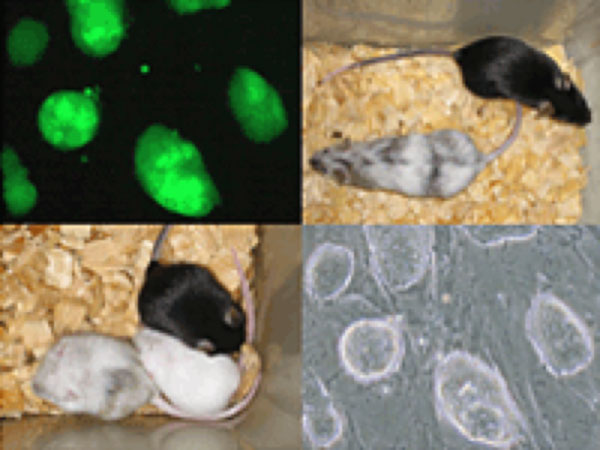In current life science research, it is important to understand the actual roles of genes or their products in the living body. For that purpose, genetically modified animals such as transgenic (Tg) mice or knockout (KO) mice are indispensable as research tools. This laboratory is conducting research on a wide range of fields including technology development related to the creation of such genetically modified animals. Recently, we have strived to establish ES cells from various strains of mice available for genetic modification and to provide them as bioresources. We have also contributed to the development of the system that readily identifies the gene insertion sites effective for genetic modification, and the development of technologies that search ubiquitously expressed genes on the chromosome such as ROSA26 and that exploit them for developing Tg vectors. In the future, we will aim for more efficient genetic modification by using genome editing technologies such as ZFN, TALEN, and CRISPR, as well as artificial chromosome technology. We are also providing our genetic modification technologies to other laboratories within the Institute and creating a variety of genetically modified mice through the collaborative researches with external organizations.

PAGE TOP